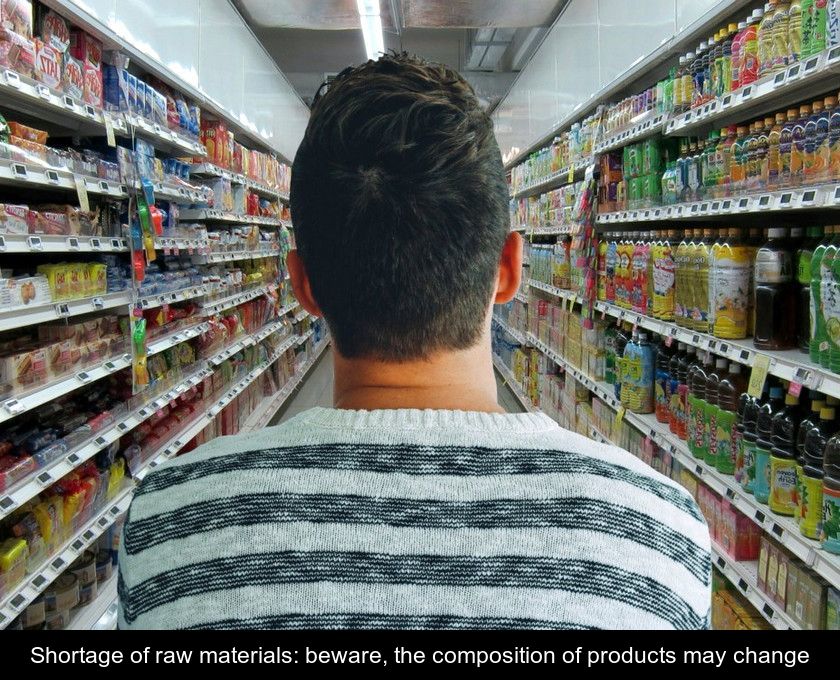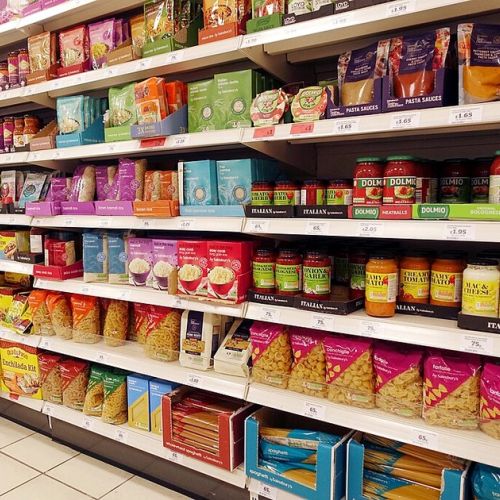Shortage Of Raw Materials: Beware, The Composition Of Products May Change
As evidenced by the recent shortage of mustard or sunflower oil in supermarkets, France is facing raw material supply difficulties that are also affecting food manufacturers. This exceptional situation explains why the Ministry of Economy temporarily authorizes manufacturers to modify the composition of products, without changing their packaging. We explain to you what this exemption of labeling consists of and what are the consequences for the consumer.
Why this labelling exemption?
Usually, manufacturers of food or cosmetic products are required to list all ingredients on the packaging.
However, due to the war in Ukraine and Russia and the resulting difficulties in supplying raw materials, the Ministry of Economy has made an exception to this rule.
It has authorized since April 26, 2022 and for 6 months, manufacturers to replace certain products in short supply such as Sunflower oil with other ingredients, without having to replace the packaging.
At the same time, the avian flu epidemic is causing supply difficulties for eggs and poultry. This is why the DGCCRF has authorized since the end of August 2022 the manufacturers of egg and poultry products to derogate from certain labeling obligations for a maximum period of 3 months.
What are the terms and conditions?
It should be noted that derogations from labeling on product composition are exceptional. They are only possible for a limited time and under certain conditions.
Manufacturers must apply to the DGCCRF, the General Directorate for Competition, Consumer Affairs and Fraud Control, via a derogation request form.
Moreover, a manufacturer can change the composition of a product only if :
- it faces proven difficulties in the supply of raw materials
- this change does not affect the safety of consumers, particularly in the case of allergies
- the product labeling is adapted to inform consumers of the change in recipe.
How is the consumer informed?
Manufacturers must explicitly and visibly indicate the change in recipe on the product packaging so that consumers are informed.
At a minimum, they must affix the word DEROG (for derogation)near the product's use-by date.
The change in recipe must be mentioned on the product in a visible and legible manner in the following cases:
- In case of addition of an allergen such as soy or peanut or gluten
- in case of addition of a GMO ingredient
- if the packaging includes a claim such as no palm oil, no GMO or free-range that would no longer be met due to the change in recipe.
What does this mean for the consumer?
The DGCCRF calls allergic consumers to be particularly vigilant and to check that the composition of the products they are used to buying has not changed.
If you suffer from a food or other allergy, look carefully when shopping for the mentions near the list of ingredients and the use-by date.
You can also consult the list of products whose recipe has been modified on the DGCCRF database (link below). There you will find the complete list of products that benefit from a temporary labeling exemption and you can search for a product by name, brand or category.
Posters with a QR code referring to this database have been put up in stores, in the departments concerned by these derogations as well as at the entrance of the stores and at the checkouts.
If you shop for food online, you should know that e-commerce sites are also obliged to inform consumers of any change in recipe.













